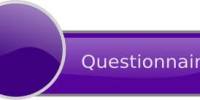Opinion Leadership is the process by which the opinion leader informally influences the actions or attitudes of others, who may be opinion seekers or merely opinion recipients. Opinion receivers perceive the opinion leader as a highly credible, objective source of product information who can help reduce their search and analysis time and perceived risk.
Opinion leaders are motivated to give information or advice to others, in part doing so enhances their own status and self image and because such advice tends to reduce any post purchase dissonance that they may have. Other motives include product involvement, message involvement or any other involvement.
Market researchers identify opinion leaders by such methods as self designation, key informants, the sociometric method and the objective method.
Studies of opinion leadership indicate that this phenomenon tends to be product category specific, generally one of their interests. An opinion leader of one product range can be an opinion receiver for another product category.
Generally, opinion leaders are gregarious, self confident, innovative people who like to talk. Additionally, they may feel differentiated from others and choose to act differently (or public individuation).
They acquire information about their areas of interest through avid readership of special interest magazines and evinces and by means of new product trials.
Their interests may often overlap into adjacent areas and thus their opinion leadership may also extend into those areas. Moreover opinion leaders can informally and subtly affect the behavior of others toward products, either positively or negatively. If they like a product or service, they can help to assure its success; if they do not like it, they can contribute to its failure. It all depends on the verbal or visual communication that flows between them and others whom they influence.
















